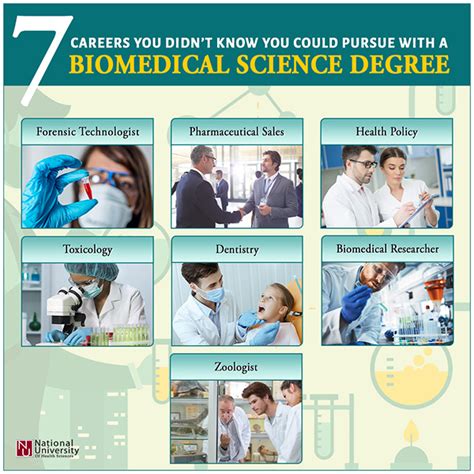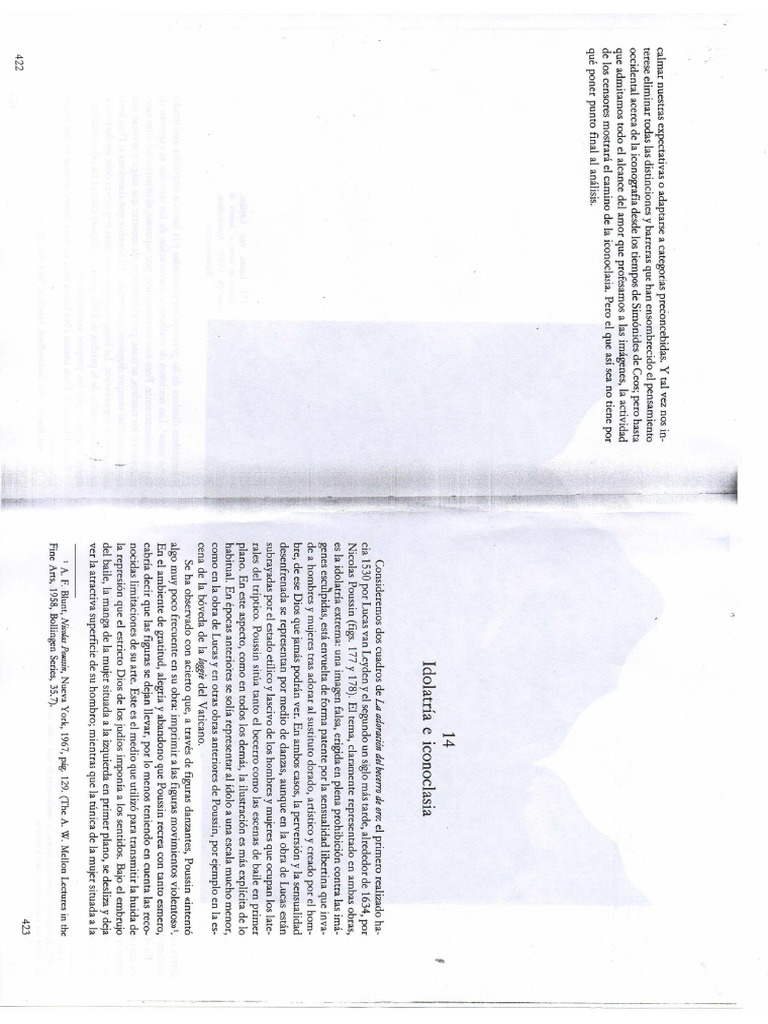Biomedical Science Careers

The field of biomedical science is vast and ever-evolving, offering a plethora of exciting career opportunities for those passionate about health, medicine, and scientific research. With its unique blend of biological, chemical, and medical principles, biomedical science careers allow professionals to make a significant impact on human health and contribute to groundbreaking advancements in the healthcare industry.
The Intriguing World of Biomedical Science Careers

Biomedical science careers are diverse and multifaceted, providing a platform for professionals to explore their interests and make meaningful contributions to the field. Whether you are fascinated by the intricacies of the human body, driven by a desire to develop innovative medical technologies, or committed to finding cures for diseases, a career in biomedical science offers an array of specialized paths to pursue.
The Role of Biomedical Scientists
At the heart of biomedical science careers are biomedical scientists, who play a pivotal role in understanding and improving human health. These professionals are tasked with conducting research, developing diagnostic tools, and contributing to the development of novel treatments and therapies. Their work often involves a blend of laboratory research, clinical investigations, and data analysis, making it a highly interdisciplinary field.
Biomedical scientists are typically employed in research institutions, universities, pharmaceutical companies, and healthcare facilities. Their expertise is sought after in various areas, including genetics, molecular biology, immunology, pharmacology, and toxicology, to name a few. The diversity of specialties within biomedical science allows professionals to specialize in areas that align with their interests and career goals.
| Specialty | Description |
|---|---|
| Genetics | Study of heredity and genetic variations, contributing to the understanding of genetic disorders and personalized medicine. |
| Molecular Biology | Investigation of biological processes at the molecular level, including DNA, RNA, and protein interactions. |
| Immunology | Research focused on the immune system, aiming to develop treatments for immune-related disorders and infections. |
| Pharmacology | Study of drugs and their interactions with the body, contributing to the development of new medications. |
| Toxicology | Analysis of the effects of chemicals and toxins on biological systems, crucial for understanding environmental and occupational health risks. |

A Day in the Life of a Biomedical Scientist
The daily routine of a biomedical scientist can vary greatly depending on their area of specialization and workplace. Here’s a glimpse into the diverse responsibilities they may undertake:
- Conducting laboratory experiments: Biomedical scientists often spend a significant portion of their time in well-equipped laboratories, where they design and execute experiments to investigate biological processes, test hypotheses, and develop new diagnostic tools.
- Analyzing data: With the abundance of data generated in biomedical research, scientists are tasked with analyzing and interpreting complex datasets. This involves using advanced statistical methods and computational techniques to draw meaningful insights.
- Collaborating with multidisciplinary teams: Biomedical science is a highly collaborative field. Scientists often work closely with colleagues from various disciplines, including clinicians, engineers, and computer scientists, to integrate diverse expertise and achieve common goals.
- Writing research proposals and grants: Securing funding for research projects is a critical aspect of a biomedical scientist's role. They must be adept at writing compelling research proposals and grants to attract funding from government agencies, private foundations, and industry partners.
- Communicating research findings: Effective communication is vital in biomedical science. Scientists present their research at conferences, publish their findings in peer-reviewed journals, and often engage in public outreach to disseminate their work and its potential impact on society.
Exploring Career Paths in Biomedical Science

The breadth of biomedical science careers extends beyond the traditional role of a biomedical scientist. Here are some additional career paths that individuals with a background in biomedical science can pursue:
Clinical Research Coordinator
Clinical research coordinators play a vital role in ensuring the smooth execution of clinical trials and research studies. They are responsible for coordinating the activities of study participants, collecting and managing data, and ensuring compliance with ethical and regulatory guidelines. This career path offers a blend of administrative, organizational, and scientific skills, making it an attractive option for those interested in both research and healthcare delivery.
Medical Technologist
Medical technologists, also known as medical laboratory scientists, are essential members of the healthcare team. They perform a range of diagnostic tests and analyses on biological specimens, providing crucial information to physicians for patient diagnosis and treatment. With a strong foundation in biomedical science, medical technologists play a critical role in the accurate and timely diagnosis of diseases.
Regulatory Affairs Specialist
Regulatory affairs specialists are responsible for ensuring that medical devices, pharmaceuticals, and biologics comply with regulatory requirements and standards. They work closely with research and development teams, providing guidance on regulatory strategies and ensuring that products meet the necessary safety and efficacy standards. This career path combines scientific knowledge with legal and compliance expertise.
Pharmaceutical Sales Representative
Pharmaceutical sales representatives serve as the bridge between pharmaceutical companies and healthcare professionals. They promote and sell pharmaceutical products, providing educational resources and support to physicians, pharmacists, and other healthcare providers. A background in biomedical science equips these professionals with the knowledge and expertise needed to effectively communicate the benefits of medical products.
Healthcare Consultant
Healthcare consultants provide strategic advice and support to healthcare organizations, helping them improve their operations, enhance patient care, and optimize their business processes. With a strong understanding of biomedical science, healthcare consultants can offer valuable insights into clinical best practices, healthcare policy, and the latest medical advancements.
Education and Skills for a Career in Biomedical Science
Pursuing a career in biomedical science typically requires a strong educational foundation. Most professionals in this field hold at least a bachelor’s degree in a related discipline, such as biology, chemistry, or biomedical science. However, for many specialized roles and research positions, a master’s or doctoral degree is often preferred or required.
In addition to academic qualifications, certain skills are highly valued in the field of biomedical science. These include:
- Critical Thinking and Problem-Solving: Biomedical scientists must possess excellent critical thinking skills to design and execute complex experiments, analyze data, and interpret results.
- Attention to Detail: Precision and accuracy are essential in biomedical research. Scientists must pay meticulous attention to detail to ensure the reliability and reproducibility of their findings.
- Communication and Collaboration: Effective communication is crucial for conveying scientific concepts and collaborating with multidisciplinary teams. Biomedical scientists must be able to articulate their ideas clearly and work effectively with colleagues from diverse backgrounds.
- Adaptability and Creativity: The field of biomedical science is dynamic and constantly evolving. Professionals must be adaptable and creative in their approach to problem-solving, as well as open to new ideas and technologies.
- Ethical Awareness: Biomedical research often involves working with human subjects and sensitive data. Scientists must have a strong sense of ethical awareness and adhere to strict guidelines to ensure the protection of participants and the integrity of research.
The Future of Biomedical Science Careers
The future of biomedical science careers is promising, with a growing demand for professionals in this field. Advancements in technology, an aging population, and the ongoing battle against diseases continue to drive the need for biomedical scientists and specialists. Here are some key trends and developments that are shaping the future of biomedical science careers:
Precision Medicine
Precision medicine, also known as personalized medicine, is an emerging approach that tailors medical treatment to an individual’s unique genetic profile and specific health needs. This field is revolutionizing healthcare by enabling more precise diagnoses, targeted therapies, and improved patient outcomes. Biomedical scientists with expertise in genetics and genomics will play a pivotal role in driving this paradigm shift.
Artificial Intelligence and Machine Learning
Artificial intelligence (AI) and machine learning are rapidly transforming biomedical research and healthcare. These technologies are being leveraged to analyze vast datasets, predict disease outcomes, and develop novel therapeutic strategies. Biomedical scientists with a strong background in data science and computational methods are well-positioned to contribute to this exciting area of research.
Global Health Initiatives
Biomedical science is integral to global health initiatives aimed at addressing pressing public health concerns, such as infectious diseases, vaccine development, and healthcare access in underserved communities. Professionals with a passion for global health can find meaningful career opportunities in international organizations, non-governmental agencies, and humanitarian aid programs.
Environmental Health and Sustainability
With growing concerns about environmental health and sustainability, the role of biomedical scientists in this domain is becoming increasingly important. These professionals contribute to research and policy development aimed at understanding the impact of environmental factors on human health, as well as finding sustainable solutions to address these challenges.
Interdisciplinary Collaborations
The future of biomedical science careers lies in interdisciplinary collaborations. As research becomes more complex and multifaceted, professionals with diverse skill sets and backgrounds will be in high demand. By working together, scientists, clinicians, engineers, and data scientists can drive innovation and make significant advancements in healthcare.
What are the entry requirements for a career in biomedical science?
+The entry requirements for a career in biomedical science typically include a bachelor’s degree in a related field, such as biology, chemistry, or biomedical science. However, some specialized roles may require a master’s or doctoral degree. It’s important to gain a strong foundation in the core sciences and develop practical laboratory skills during your academic journey.
What are the career prospects for biomedical scientists?
+Career prospects for biomedical scientists are promising, with a growing demand for professionals in research institutions, pharmaceutical companies, healthcare facilities, and government agencies. The field offers diverse opportunities for specialization and advancement, allowing individuals to pursue their interests and make meaningful contributions to healthcare.
How can I stay updated with advancements in biomedical science?
+Staying updated with advancements in biomedical science is crucial for professionals in the field. Some ways to achieve this include attending scientific conferences and workshops, subscribing to reputable scientific journals and publications, joining professional associations, and actively participating in online communities and forums dedicated to biomedical science.



